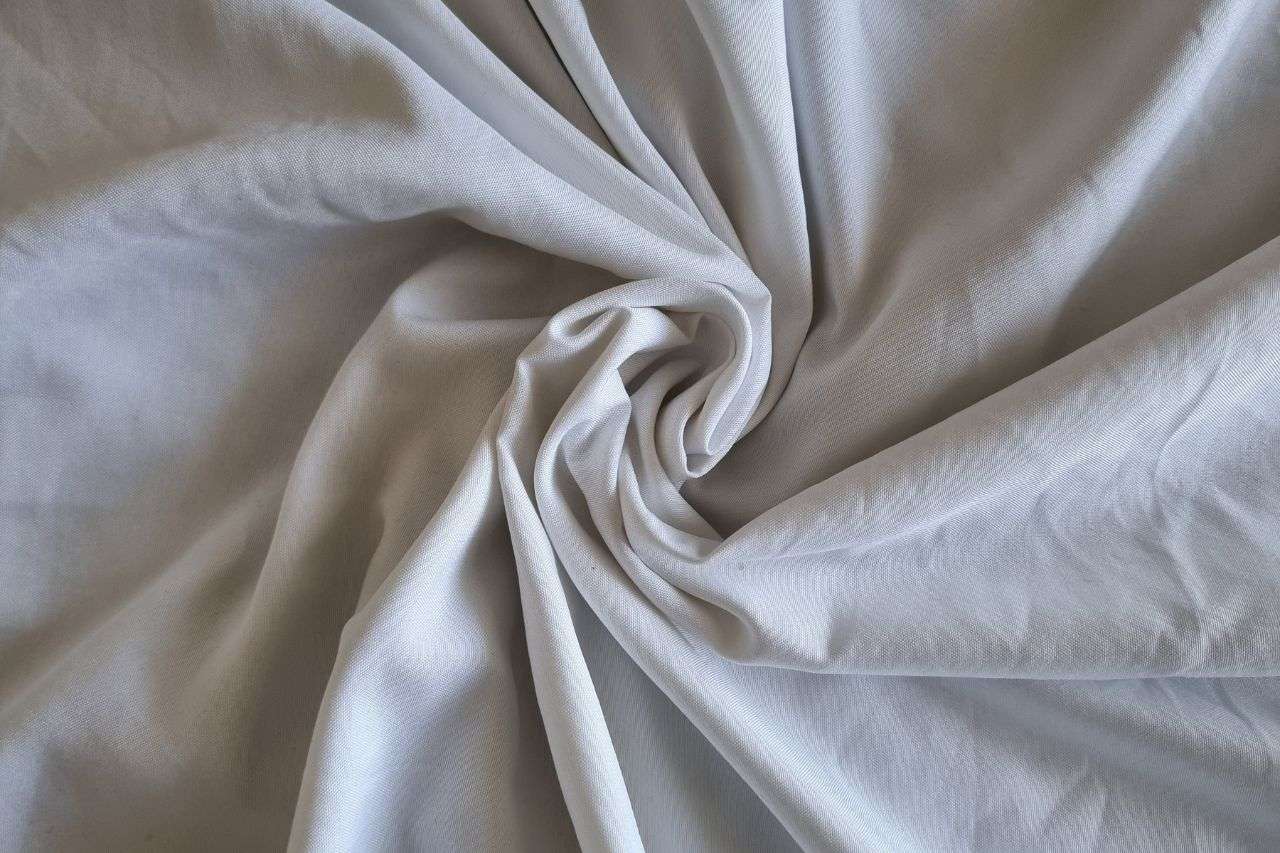Clean bedsheets are essential for maintaining good hygiene and promoting overall health. We spend a significant amount of time in our beds, and during this time, our bodies shed dead skin cells, sweat, and produce body oils. If these substances are not regularly removed from our bedsheets, they can accumulate and create an environment that is conducive to the growth of bacteria, fungi, and dust mites. This can lead to various health issues such as skin irritations, allergies, and respiratory problems.
Dirty bedsheets can have a negative impact on our skin. When we sleep on dirty sheets, the accumulated dirt and oils can clog our pores and lead to breakouts and acne. Additionally, the presence of bacteria on our bedsheets can cause skin infections and irritations. For individuals with sensitive skin or conditions such as eczema, clean bedsheets are even more crucial as they can help prevent flare-ups and alleviate symptoms.
Furthermore, dirty bedsheets can also affect our respiratory system. Dust mites thrive in warm and humid environments, which is why they are commonly found in bedding. These microscopic creatures feed on dead skin cells and produce waste that contains allergens. Breathing in these allergens can trigger allergic reactions such as sneezing, coughing, and wheezing. Individuals with asthma or other respiratory conditions are particularly susceptible to these allergens and may experience worsened symptoms if their bedsheets are not regularly cleaned.
Key Takeaways
- Clean bedsheets are important for maintaining good hygiene and health.
- Factors like sweat, skin oils, and pets can affect how often you should wash your bedsheets.
- It is recommended to wash your bedsheets at least once a week.
- Signs that your bedsheets need washing include odor, stains, and visible dirt.
- Tips for maintaining clean bedsheets include using a mattress protector, washing with hot water, and avoiding fabric softeners.
Factors That Affect How Often You Should Wash Your Bedsheets
Several factors can influence how often you should wash your bedsheets. One of the main factors is sweat. When we sleep, our bodies naturally produce sweat to regulate temperature. This sweat can seep into our bedsheets and create an ideal environment for bacteria to thrive. If you tend to sweat heavily during the night or if you live in a hot and humid climate, you may need to wash your bedsheets more frequently.
Body oils are another factor to consider. Our bodies naturally produce oils that can transfer onto our bedsheets. These oils can attract dirt and bacteria, leading to the accumulation of grime over time. If you have oily skin or if you use skincare products that leave a residue on your skin, you may need to wash your bedsheets more often.
Pets can also contribute to the dirtiness of your bedsheets. If you allow your pets to sleep on your bed, their fur, dander, and dirt can transfer onto your sheets. This can not only make your bedsheets dirty but also trigger allergies in individuals who are sensitive to pet dander. If you have pets that sleep on your bed, it is recommended to wash your bedsheets more frequently.
The Recommended Frequency for Washing Bedsheets
The recommended frequency for washing bedsheets is typically once a week. This allows enough time for dirt, sweat, and body oils to accumulate without reaching levels that can negatively impact hygiene and health. However, certain factors may require more frequent washing.
During the summer months or in hot and humid climates, it is advisable to wash your bedsheets more often. The increased heat and humidity can lead to more sweating, making it necessary to clean your sheets every 3-4 days. Additionally, if you have allergies or respiratory conditions, washing your bedsheets more frequently can help reduce allergens and improve air quality.
How to Know When Your Bedsheets Need Washing
| Signs Your Bedsheets Need Washing |
|---|
| 1. Foul odor |
| 2. Stains or discoloration |
| 3. Itching or irritation |
| 4. Visible dirt or debris |
| 5. Allergies or respiratory issues |
| 6. Bed bugs or other pests |
| 7. Rough or scratchy texture |
There are several signs that indicate when your bedsheets need washing. One obvious sign is visible dirt or stains on the sheets. If you notice any discoloration or spots on your bedsheets, it is a clear indication that they need to be washed.
Another way to check if your bedsheets need washing is by smelling them. If they have a musty or unpleasant odor, it means that bacteria and sweat have accumulated and it is time for a wash. Additionally, if you wake up with skin irritations or respiratory symptoms such as sneezing or coughing, it may be a sign that your bedsheets are dirty and need to be cleaned.
Tips for Maintaining Clean Bedsheets for Longer Periods
To maintain clean bedsheets for longer periods, there are several tips you can follow. Firstly, it is important to shower before bed to remove dirt, sweat, and oils from your body. By doing so, you can minimize the amount of dirt that transfers onto your bedsheets.
Another tip is to avoid eating or drinking in bed. Food crumbs and spills can easily soil your sheets and attract pests such as ants or bed bugs. By keeping your bed strictly for sleeping, you can reduce the chances of dirt and stains accumulating on your bedsheets.
Regularly washing your pillowcases can also help maintain clean bedsheets for longer periods. Pillowcases come into direct contact with your face and can accumulate oils, sweat, and bacteria. By washing them every few days or at least once a week, you can prevent these substances from transferring onto your bedsheets.
The Best Way to Wash Your Bedsheets

When it comes to washing your bedsheets, there are a few key steps to follow to ensure they are properly cleaned. Firstly, it is important to check the care label on your sheets for any specific instructions regarding washing temperature or detergent type.
Before washing, it is recommended to pre-treat any stains on your bedsheets. This can be done by applying a stain remover directly onto the affected area and allowing it to sit for a few minutes before washing.
When selecting a detergent, choose one that is suitable for your type of sheets and skin sensitivity. Opt for a mild detergent that is free from harsh chemicals or fragrances that can irritate the skin. If you have allergies or sensitive skin, consider using a hypoallergenic detergent.
In terms of water temperature, it is generally recommended to wash your bedsheets in hot water to kill bacteria and dust mites. However, if your sheets are made of delicate fabrics or have specific care instructions, it is best to follow those guidelines.
How to Dry and Store Your Bedsheets Properly
After washing your bedsheets, it is important to dry and store them properly to maintain their quality and prevent wrinkles. If possible, it is best to air dry your sheets outside in the sun. Sunlight has natural disinfecting properties and can help remove any remaining stains or odors. Additionally, the fresh air can give your sheets a pleasant scent.
If air drying is not an option, you can use a dryer on a low heat setting. Avoid using high heat as it can damage the fabric and cause shrinkage. To prevent wrinkles, remove the sheets from the dryer while they are still slightly damp and smooth them out before folding or putting them back on the bed.
When storing your bedsheets, it is important to keep them in a clean and dry place. Avoid storing them in plastic bags or containers as this can trap moisture and lead to mold or mildew growth. Instead, use breathable fabric bags or simply fold them neatly and place them in a linen closet or drawer.
Common Mistakes to Avoid When Washing Bedsheets
There are several common mistakes that people make when washing their bedsheets that can lead to damage or ineffective cleaning. One mistake is overloading the washing machine with too many sheets. This can prevent proper agitation and rinsing, resulting in inadequate cleaning. It is important to follow the recommended load capacity of your washing machine and leave enough space for the sheets to move freely.
Another mistake is using too much detergent. Excess detergent can leave residue on your bedsheets, making them feel stiff or sticky. It can also be difficult to rinse out completely, leading to a build-up of soap residue over time. Follow the recommended dosage on the detergent packaging and adjust accordingly based on the size of your load.
Using bleach on colored sheets is another common mistake. Bleach can cause colors to fade and weaken the fabric fibers. If you need to whiten your sheets, opt for oxygen-based bleach or natural alternatives such as lemon juice or baking soda.
How to Deal with Stains and Odors on Your Bedsheets
Stains and odors on bedsheets can be stubborn and difficult to remove. However, with the right techniques, you can effectively deal with them. For stains, it is important to treat them as soon as possible. Apply a stain remover directly onto the affected area and gently rub it in. Let it sit for a few minutes before washing as usual.
For tough stains such as blood or sweat stains, you can create a paste using hydrogen peroxide and baking soda. Apply the paste onto the stain and let it sit for a few hours before washing. This method can help lift stubborn stains and restore the whiteness of your sheets.
To remove odors from your bedsheets, you can add a cup of white vinegar to the rinse cycle. Vinegar has natural deodorizing properties and can help eliminate any lingering smells. Alternatively, you can add a few drops of essential oil to your laundry detergent for a fresh scent.
Keeping Your Bedsheets Fresh and Clean
In conclusion, clean bedsheets are crucial for maintaining good hygiene and promoting overall health. Dirty bedsheets can harbor bacteria, dust mites, and allergens that can lead to skin irritations, allergies, and respiratory problems. By following the recommended frequency for washing bedsheets and implementing proper cleaning techniques, you can ensure that your bedsheets remain fresh and clean.
Factors such as sweat, body oils, and pets can influence how often you should wash your bedsheets. It is important to consider these factors and adjust your washing routine accordingly. Regularly checking for signs of dirt, stains, and odors on your bedsheets can help you determine when they need to be washed.
To maintain clean bedsheets for longer periods, it is important to practice good hygiene habits, such as showering before bed and avoiding eating or drinking in bed. Following proper washing, drying, and storing techniques can also help maintain the quality of your bedsheets and prevent damage.
By taking the necessary steps to keep your bedsheets fresh and clean, you can create a comfortable and healthy sleeping environment that promotes overall well-being.
If you’re wondering how frequently you should wash your bedsheets, you might also be interested in learning about the benefits of hiring a professional office cleaning service. Keeping your workspace clean and tidy is essential for productivity and employee well-being. In this related article, “Reasons to Hire a Professional Office Cleaning Service,” you’ll discover why outsourcing your office cleaning needs can save you time, money, and ensure a healthier work environment. To read more about it, click here.
FAQs
What is the recommended frequency for washing bedsheets?
Experts recommend washing bedsheets once a week to maintain good hygiene and prevent the buildup of bacteria, sweat, and dead skin cells.
What factors can affect how often you should wash your bedsheets?
Factors such as personal hygiene, sweating, allergies, and skin conditions can affect how often you should wash your bedsheets. If you sweat heavily or have allergies or skin conditions, you may need to wash your sheets more frequently.
What are the consequences of not washing your bedsheets regularly?
Not washing your bedsheets regularly can lead to the buildup of bacteria, dust mites, and dead skin cells, which can cause skin irritation, allergies, and respiratory problems. It can also lead to unpleasant odors and stains on your sheets.
What is the best way to wash bedsheets?
The best way to wash bedsheets is to use hot water and a mild detergent. Avoid using fabric softeners or bleach, as they can damage the fibers of your sheets. It is also important to dry your sheets thoroughly to prevent the growth of mold and mildew.
How often should you replace your bedsheets?
Experts recommend replacing your bedsheets every 2-3 years, or sooner if they become worn or damaged. Over time, sheets can lose their softness and absorbency, making them less comfortable to sleep on.




